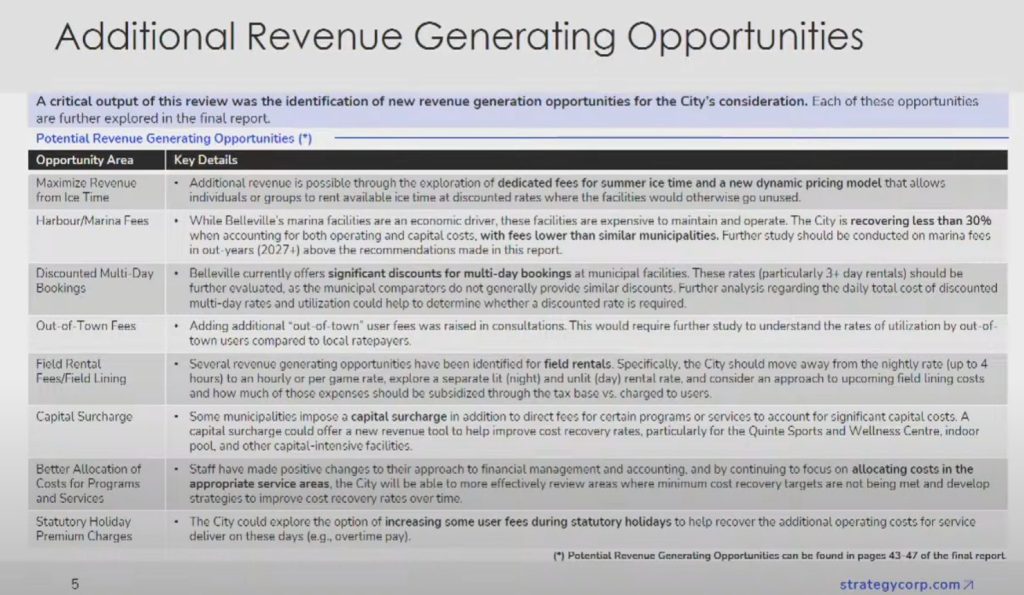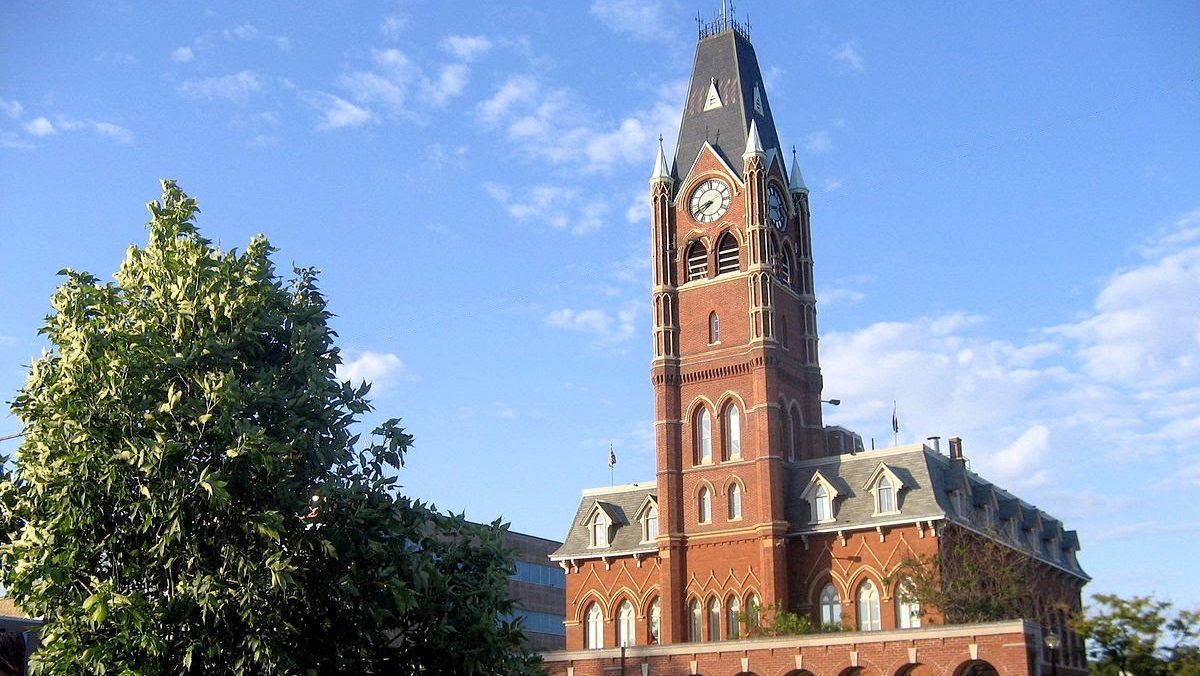August 8, 2024 – User fees study recommends additional revenue generating opportunities

The following opportunities were identified, but have not yet been implemented:
Maximize Revenue from Ice Time
Additional revenue is possible through the exploration of dedicated fees for summer ice time and a new dynamic pricing model that allows individuals or groups to rent available ice time at discounted rates where the facilities would otherwise go unused.
Differentiated Fees for Summer Ice: At present, Belleville is one of the few locations in the region offering summer ice, which is a unique draw but can be costly to operate. Users of summer ice are typically weighted towards those who are particularly active in the sport and/or higher-level / elite hockey programs looking to continue training during the off-season. These individuals would likely pay a premium rate for utilizing high quality ice time during the summer months, particularly where few alternatives exist in the local region (though increasing fees too heavily could incentivize other municipalities to enter the summer ice market).
Belleville currently does not have a separate rate structure for summer ice, despite potentially higher costs in these months and with limited competitors nearby. The City could investigate adding a new category of ice rental fees for the summer months to account for higher costs to operate or instead add a surcharge on top of the existing ice rental rates that applies only during defined summer months (e.g., extra surcharge would apply between May 1st – August 31st). The latter approach may be less complicated as the City could simply adjust the surcharge rate in future years if market conditions change.
Dynamic Pricing for Ice Time: Ice utilization (and therefore revenues) can be increased with dynamic pricing models that allow individuals or groups to rent available ice time at discounted rates where the facilities would otherwise go unused. The City incurs costs to keep the QSWC arenas open regardless of usage, so attracting last minute ice users can help collect some revenue and improve the underlying cost recovery rate for these facilities. Dynamic pricing can help accomplish this and is a practice that has been implemented in some municipalities to increase usage of otherwise unused ice times.
For example, in Mississauga, the City maintains an online portal for booking last minute ice within 120 hours or 5 days of the available timeslot, with rates of $108.20 per hour for non-prime time and $190.50 per hour for prime time. This represents a discount of approximately 39% and 42% respectively off the equivalent resident rates for ice time when booked in advance. We note that Belleville has already implemented a last-minute discount (up to 25% off for 5 days’ notice and up to 33% off for 3 days’ notice) for some arena rental fees (though ice users are required to call or email staff for available discounts). Implementing a dynamic pricing model with online bookings could help to offset a potential loss in facility utilization rates for more price sensitive users when ice time rental fees are increased.
Harbour/Marina Fees
While Belleville’s marina facilities are an economic driver, these facilities are expensive to maintain and operate. The City is recovering less than 30% when accounting for both operating and capital costs, with fees lower than similar municipalities. Further study should be conducted on marina fees in out-years (2027+) above the recommendations made in this report.
Discounted Multi-Day Bookings
Belleville currently offers significant discounts for multi-day bookings at municipal facilities. These rates (particularly 3+ day rentals) should be further evaluated, as the municipal comparators do not generally provide similar discounts. Further analysis regarding the daily total cost of discounted multi-day rates and utilization could help to determine whether a discounted rate is required.
Out-of-Town Fees
Adding additional “out-of-town” user fees was raised in consultations. This would require further study to understand the rates of utilization by out-of-town users compared to local ratepayers.
Field Rental Fees/Field Lining
Several revenue generating opportunities have been identified for field rentals. Specifically, the City should move away from the nightly rate (up to 4 Fees/Field Lining hours) to an hourly or per game rate, explore a separate lit (night) and unlit (day) rental rate, and consider an approach to upcoming field lining costs and how much of those expenses should be subsidized through the tax base vs. charged to users.
Capital Surcharge
Some municipalities impose a capital surcharge in addition to direct fees for certain programs or services to account for significant capital costs. A
capital surcharge could offer a new revenue tool to help improve cost recovery rates, particularly for the Quinte Sports and Wellness Centre, indoor pool, and other capital-intensive facilities.
Better Allocation of Costs for Programs and Services
Staff have made positive changes to their approach to financial management and accounting, and by continuing to focus on allocating costs in the appropriate service areas, the City will be able to more effectively review areas where minimum cost recovery targets are not being met and develop and Services strategies to improve cost recovery rates over time.
Statutory Holiday Premium Charges
The City could explore the option of increasing some user fees during statutory holidays to help recover the additional operating costs for service deliver on these days (e.g., overtime pay).
Header image provided by Freepik

Comments
We want to hear from you! Share your opinions below and remember to keep it respectful. Please read our Community Guidelines before participating.